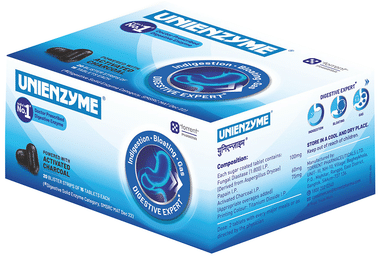Ropifix 0.2% Injection
Prescription Required
Product introduction
Ropifix 0.2% Injection is a local anesthetic. It is used during minor surgical procedures such as dental, oral, diagnostic, or other therapeutic procedures to anesthetize or numb the surgical area.
Ropifix 0.2% Injection must be administered by healthcare professionals. It blocks the pain signals to reach the brain by temporarily numbing the surgical area and helps to perform a painless procedure.
The most common side effects of this medicine include hypotension, nausea, vomiting, slow heart rate, fever, anemia, paresthesia, headache, itching, and back pain. These are usually mild and short-lived. If the numbness or other side effects persist at the injection site, consult your doctor without delay.
Before using Ropifix 0.2% Injection, it is very important to tell your doctor if you have any underlying heart disease or are taking medicines for heart rhythm problems. Ask your doctor for advice if you are pregnant or breastfeeding. Also, it is not safe to drive or operate heavy machinery while on medication, as you may feel dizzy.
Ropifix 0.2% Injection must be administered by healthcare professionals. It blocks the pain signals to reach the brain by temporarily numbing the surgical area and helps to perform a painless procedure.
The most common side effects of this medicine include hypotension, nausea, vomiting, slow heart rate, fever, anemia, paresthesia, headache, itching, and back pain. These are usually mild and short-lived. If the numbness or other side effects persist at the injection site, consult your doctor without delay.
Before using Ropifix 0.2% Injection, it is very important to tell your doctor if you have any underlying heart disease or are taking medicines for heart rhythm problems. Ask your doctor for advice if you are pregnant or breastfeeding. Also, it is not safe to drive or operate heavy machinery while on medication, as you may feel dizzy.
Uses of Ropifix Injection
- Local anesthesia (Numb tissues in a specific area)
- Arrhythmia
- Piles
- Mouth ulcers
Side effects of Ropifix Injection
Most side effects do not require any medical attention and disappear as your body adjusts to the medicine. Consult your doctor if they persist or if you’re worried about them
Common side effects of Ropifix
- Hypotension (low blood pressure)
- Nausea
- Vomiting
- Slow heart rate
- Fever
- Anemia (low number of red blood cells)
- Paresthesia (tingling or pricking sensation)
- Headache
- Itching
- Back pain
How to use Ropifix Injection
Your doctor or nurse will give you this medicine. Kindly do not self administer.
How Ropifix Injection works
Ropifix 0.2% Injection is a local anesthetic. It works by blocking the transmission of pain signals from the nerves to the brain. This helps to decrease the sensation of pain.
Safety advice
Alcohol
CONSULT YOUR DOCTOR
It is not known whether it is safe to consume alcohol with Ropifix 0.2% Injection. Please consult your doctor.
Pregnancy
SAFE IF PRESCRIBED
Ropifix 0.2% Injection is generally considered safe to use during pregnancy. Animal studies have shown low or no adverse effects to the developing baby; however, there are limited human studies.
Breast feeding
SAFE IF PRESCRIBED
Ropifix 0.2% Injection is probably safe to use during breastfeeding. Limited human data suggests that the drug does not represent any significant risk to the baby.
Driving
UNSAFE
Ropifix 0.2% Injection may decrease alertness, affect your vision or make you feel sleepy and dizzy. Do not drive if these symptoms occur.
Kidney
SAFE IF PRESCRIBED
Ropifix 0.2% Injection is probably safe to use in patients with kidney disease. Limited data available suggests that dose adjustment of Ropifix 0.2% Injection may not be needed in these patients. Please consult your doctor.
Liver
CAUTION
Ropifix 0.2% Injection should be used with caution in patients with liver disease. Dose adjustment of Ropifix 0.2% Injection may be needed. Please consult your doctor.
All substitutes
For informational purposes only. Consult a doctor before taking any medicines.
No substitutes found for this medicine
Quick tips
- It is given as an injection by the healthcare professional.
- Ropifix 0.2% Injection may affect your concentration or make you feel sleepy, so avoid driving or using tools or machines until the next day.
- Consult your doctor immediately if you experience dizziness, lightheadedness, problem with sight or hearing or numbness around lips, tongue and mouth.
- Inform your doctor if you are pregnant, planning pregnancy or breastfeeding.
Fact Box
Chemical Class
Amide derivative
Habit Forming
No
Therapeutic Class
PAIN ANALGESICS
Action Class
Amide-Type Local Anesthetics
Interaction with drugs
Taking Ropifix with any of the following medicines can modify the effect of either of them and cause some undesirable side effects
If concurrent use is essential, your doctor may monitor and adjust the doses as per the observations. Rucaparib may raise blood levels of Ropivacaine.
If concurrent use is essential, your doctor may monitor your treatment and adjust the doses as per the observations. Ciprofloxacin may slow down the removal of Ropivacaine from the
If concurrent use is essential, your doctor may monitor your treatment and adjust the doses as per the observations. Ciprofloxacin may slow down the removal of Ropivacaine from the
Your doctor may monitor the effects of Teriflunomide when taken concurrently with Ropivacaine. Ropivacaine may reduce blood levels of Teriflunomide.
Your doctor may monitor the effects of Leflunomide when taken concurrently with Ropivacaine. Leflunomide may reduce blood levels of Ropivacaine.
Patient concerns
FAQs
What is Ropifix 0.2% Injection used for?
Ropifix 0.2% Injection is a local anesthetic used before any surgical procedure or diagnostic procedure. It helps to numb the area and reduces the discomfort associated with the insertion of medical instruments such as needles or catheters.
How is Ropifix 0.2% Injection administered? How long does it last?
Ropifix 0.2% Injection is supplied as a solution that is to be administered epidurally either as an injection or as an intravenous infusion. Impact of Ropifix 0.2% Injection on the body depends on the administration site and dose and may range between 3 to 10 hours. Talk to your doctor if you have any queries about the impact of this medicine.
Is Ropifix 0.2% Injection safer than bupivacaine?
Ropifix 0.2% Injection is a left isomer of bupivacaine. Compared to bupivacaine, Ropifix 0.2% Injection has less toxic effects on the heart and central nervous system. Therefore, it is safer than bupivacaine.
What are the side effects of Ropifix 0.2% Injection?
The most common side effects of Ropifix 0.2% Injection are paresthesia (tingling or pricking sensation), back pain, irregular heart rate, dizziness, headache, high blood pressure, inability to empty the urinary bladder, increased body temperature, feeling of cold and vomiting. These usually subside once the effect of Ropifix 0.2% Injection wears off. However, if you notice worsening if these side effects or if they worry you, please consult your doctor.
What are the early symptoms of local anesthesia toxicity?
Our nervous system is more sensitive to the effects of local anesthetics than any other system of the human body. Therefore, the early symptoms of local anesthesia toxicity are tinnitus (ringing sound in the ears), blurred vision, dizziness, tongue paresthesia (tingling or pricking sensation), and circumoral numbness (numbness around the eyes).
Is Ropifix 0.2% Injection a steroid?
No. Ropifix 0.2% Injection is not a steroid. Ropifix 0.2% Injection is a local anesthetic that belongs to the class of anesthetics known as long acting amides. It works by blocking the nerve signals in the area of injection and thus numbs the area temporarily. In this way, Ropifix 0.2% Injection restricts the pain sensation in the area it is administered.
Related ayurvedic ingredients
Disclaimer:
Tata 1mg's sole intention is to ensure that its consumers get information that is expert-reviewed, accurate and trustworthy. However, the information contained herein should NOT be used as a substitute for the advice of a qualified physician. The information provided here is for informational purposes only. This may not cover everything about particular health conditions, lab tests, medicines, all possible side effects, drug interactions, warnings, alerts, etc. Please consult your doctor and discuss all your queries related to any disease or medicine. We intend to support, not replace, the doctor-patient relationship.References
- Catterall WA, Mackie K. Local Anesthetics. In: Brunton LL, Chabner BA, Knollmann BC, editors. Goodman & Gilman’s: The Pharmacological Basis of Therapeutics. 12th ed. New York, New York: McGraw-Hill Medical; 2011. p. 574.
- Briggs GG, Freeman RK, editors. A Reference Guide to Fetal and Neonatal Risk: Drugs in Pregnancy and Lactation. 10th ed. Philadelphia, PA: Wolters Kluwer Health; 2015. pp. 1235-36.
Marketer details
Name: Varenyam Healthcare Pvt Ltd
Address: 2, Vitrag Appartment, Karelibaug, Vadodara-390018, Gujarat, INDIA
Country of origin: India
Lab tests offered by us

Related/Popular tests
NOT FOR SALE
We do not facilitate sale of this product at present












